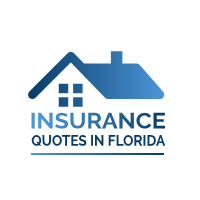Motorcycle insurance law in Florida can be confusing. Many people have the mistaken belief that motorcyclists do not need insurance because car insurance law is not the same as motorcycle insurance law. Florida’s Financial Responsibility Law does, however, apply to motorcycles and there are consequences for not carrying motorcycle insurance. This article is a basic overview of motorcycle insurance law in Florida.
Car Insurance vs. Motorcycle Insurance
In many states, car insurance laws and motorcycle insurance laws are the same, but in Florida there are big differences between the two types of laws. Most importantly, Florida car drivers must have Personal Injury Protection (PIP), which covers medical bills and lost wages, regardless of who is at fault for an accident. PIP insurance laws do not apply to motorcycles. Some insurance companies may offer PIP insurance for motorcycles that is similar to PIP insurance for cars, but that insurance is not regulated by Florida law because PIP is not required for motorcycles. Also, after a motorcycle accident, a person does not need to show a permanent injury to recover money for pain and suffering, unlike an injury resulting from a car accident.
Get Motorcycle Insurance
Generally, there are two ways to obtain motorcycle insurance in Florida:
- Buy coverage from an insurance carrier licensed to do business in Florida (this is the most common way to get insurance);
- Get a Self-Insurance Certificate from the Bureau of Financial Responsibility based on net worth.
A licensed insurance agent can provide information about insurance options available, but the minimum requirements for motorcycle insurance in Florida are as follows:
- $10,000 for one person for bodily injury liability;
- $20,000 for two or more people for bodily injury liability; and
- $10,000 per crash for property damage liability.
Motorcyclists may consider purchasing uninsured motorist coverage (UM) in addition to other forms of insurance. UM may help with medical bills, lost wages, and pain and suffering if you are injured in a crash and the other driver does not have bodily injury insurance or the bodily injury insurance is not enough to cover your expenses. In Florida, UM benefits automatically “stack,” meaning you can combine the UM coverage you have on other vehicles. Insurance companies may place limits on this, however, so you may consider discussing the stacking policy with your insurance agent.
Proof of Financial Responsibility
After getting motorcycle insurance, the insurance company will send the Department of Highway Safety and Motor Vehicles (DHSMV) details of the insurance policy, which are kept in the DHSMV computer system. Even though DHSMV will have this insurance information in its database, every motorcyclist should keep proof of financial responsibility on them. Proof depends on the type of insurance or financial responsibility you have, but may include the following:
- An insurance card from an insurance carrier; or
- A Self-Insurance Certificate from the Bureau of Financial Responsibility.
Penalties for Not Having Insurance
Motorcycle owners who cannot provide proof of insurance may have to deal with penalties, such as suspension of driver’s licenses, motorcycle registration, and motorcycle license plates, as well as fees to regain driving privileges.
